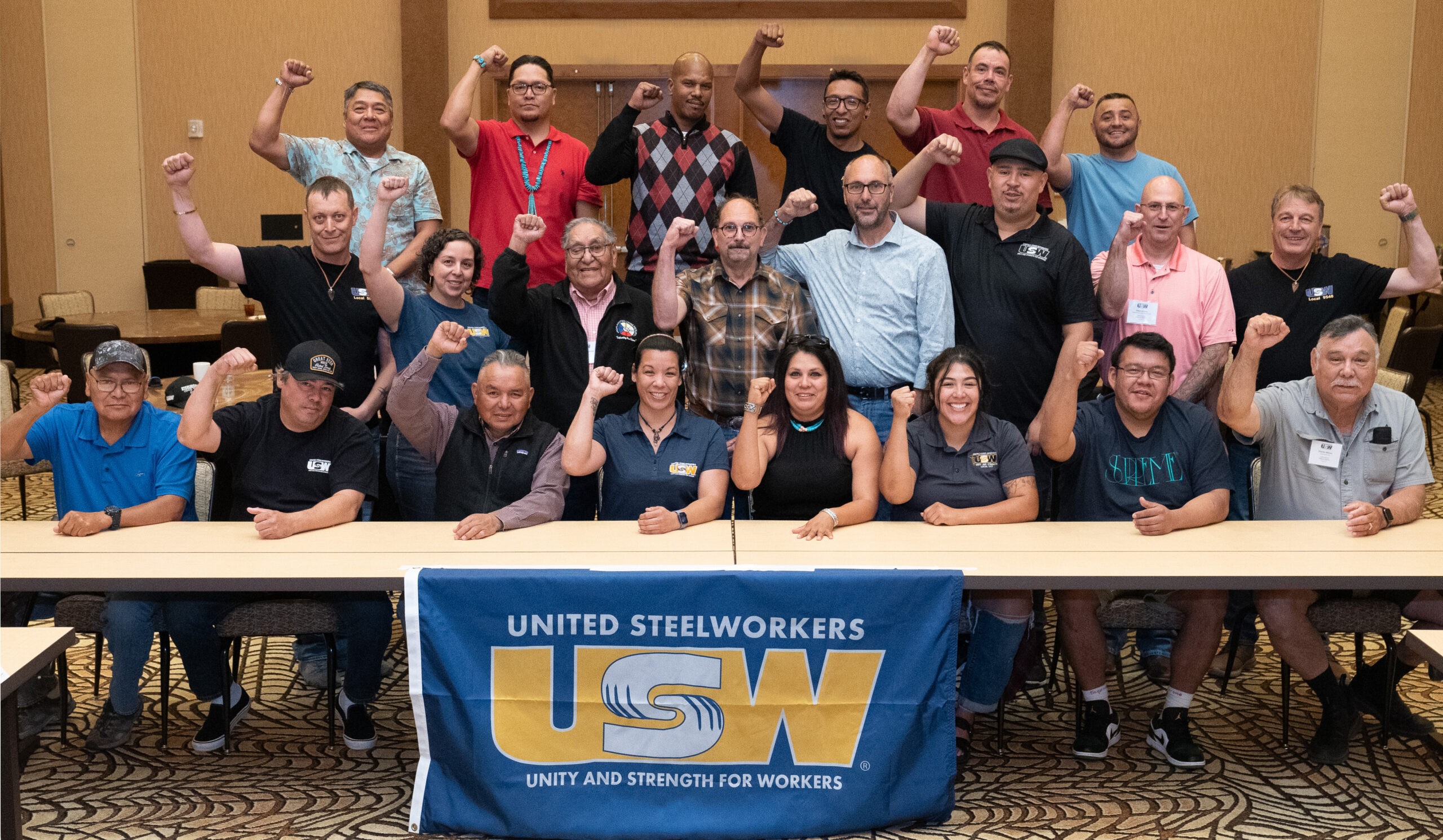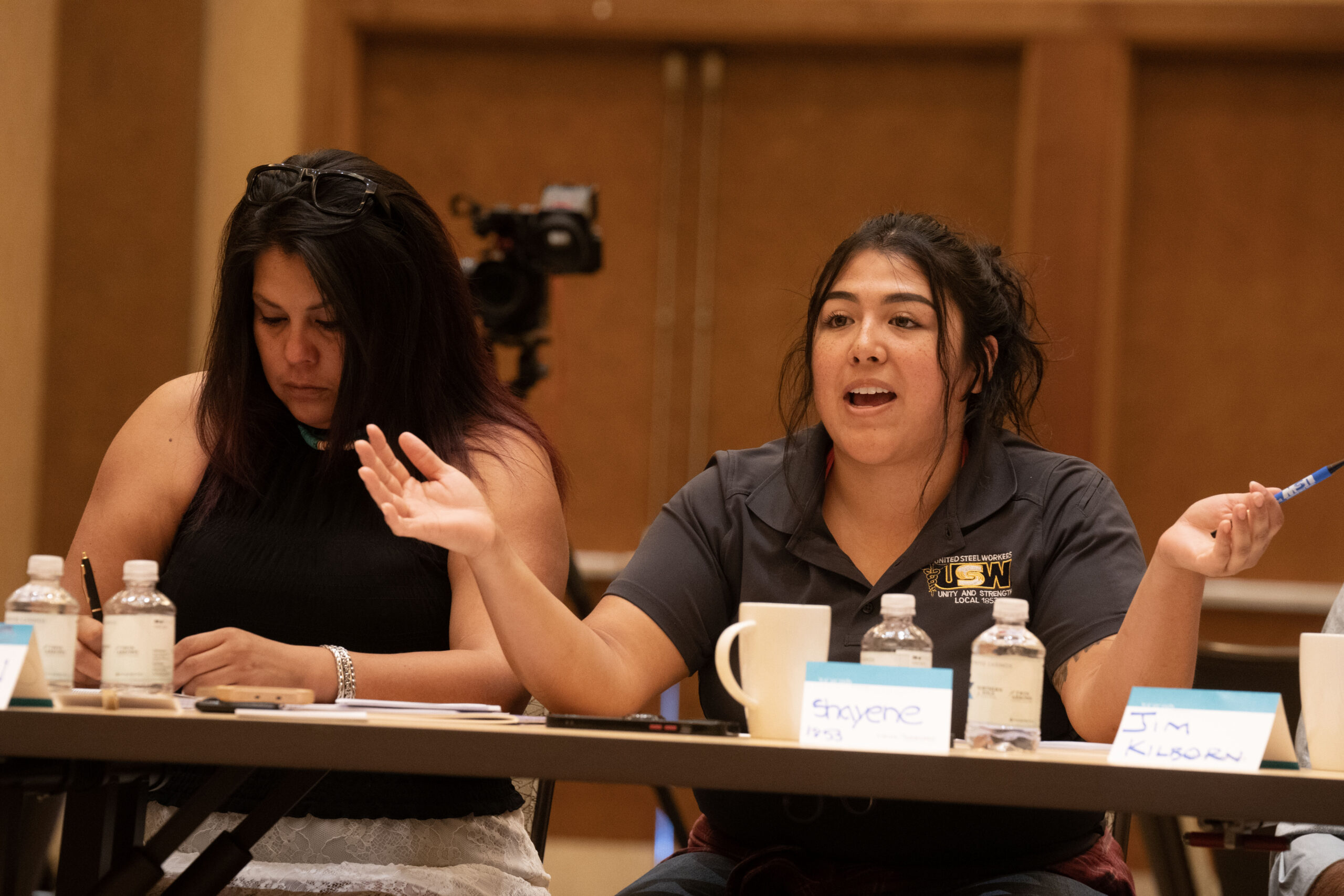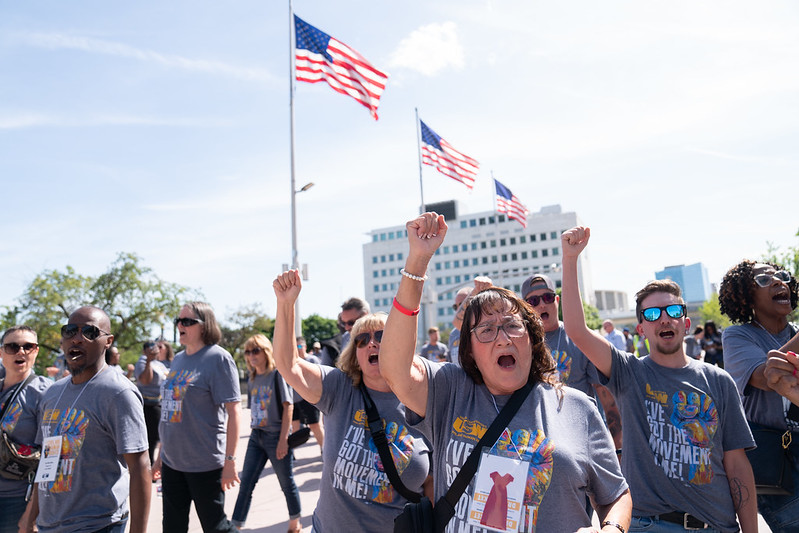District 12 hosts first gathering of Indigenous members in United States
More than a dozen Indigenous members from across District 12 gathered in Flagstaff, Ari., on July 18-19 to discuss challenges their communities face, learn more about the union, and brainstorm about how to educate and empower others.
This was the first gathering of Native and Indigenous USW members in the United States and included workers from a variety of industries such as oil, steel, health care and aluminum.
“We’re here to figure out how we can build relationships. That’s our union’s history,” said District 12 Director Gaylan Prescott. “I want to learn about you, about your cultures, and how you view the world. I want to know how we can be a better community.”

The meeting was hosted by Local 12-477 at Elk Petroleum and moderated by Hopi elder LeRoy Shingoitewa, who commenced the two-day gathering by sharing stories about the significance of the surrounding land, inhabited by Hopi and Navajo bands.
“Our relationship with the land is our guiding light to survive in this world,” said Shingoitewa. “We don’t own the land; we are allowed to use it.”
The group then engaged in a talking circle, discussing their values, what the union is, and how it operates. The conversation focused on helping the members get to know each other and look inward.
Origins of reconciliation
On the first day, the participants were also able to hear from Cody Alexander and Joe Krmpotich, who helped build a relationship between Local 9548 and the nearby Indigenous communities in Sault Ste. Marie, Ontario.
“I firmly believe the USW has a role to play in reconciliation,” said Alexander. “Making these relationships isn’t easy. There are a lot of politics, and a lot of differences, but you’ve got to stick to it.”
The USW Canadian National Office now has an Indigenous Committee and has recently hired two Indigenous Engagement Coordinators in Districts 3 and 6. There are also now 14 union trainers who facilitate a five-day course called Unionism on Turtle Island, designed for both Indigenous and non-Indigenous members.
The second day of the Flagstaff gathering began with a virtual visit from Chief Rickard of the Garden River First Nation in Ontario, who has worked consistently with Local 9548.
“We’ve had really great dialogue to try and bridge the gap between us and the labor community,” he said.
The chief said this is especially important as investments in infrastructure and the growth of the energy sector offer opportunities for innovation and good-paying jobs.
“We want to be part of that solution as well because we as Indigenous people have a lot to offer.”

Honoring their roots
The group also took time to discuss working in industries, such as oil and mining, that seem to conflict with their Indigenous culture that prioritizes protecting the environment.
“This is why people leave the reservation though, for good-paying jobs,” said Marcus Chee, who lives and works in Pueblo, Colo.
The members also strategized for the days, months, and years ahead. Frank Fatt of Local 12-477 said that one of his top priorities moving forward is establishing contract language that supports Indigenous culture, including bereavement for the loss of extended family members, land acknowledgments, and time off for certain spiritual ceremonies.
“Something in writing that backs us up would be good for us,” he said.
Towards the end of the gathering, members shared their thoughts on how they feel it went and what they’re looking forward to the most. Charlie Wilson of Local 951 said he is anxious to see how the group grows, especially since he had zero expectations when he landed in Arizona.
“I didn’t anticipate learning what I’ve learned here,” said Wilson. “I feel like I’m a part of something.”
Director Prescott closed the two-day event with the importance of the gathering and what it means for the future.
“There’s an understanding that our union has not done enough when it comes to connecting with our Indigenous membership and offering them a platform,” said Prescott. “This is an important initiative not just for our members but for our society in general.”
By clicking Sign Up you're confirming that you agree with our Terms and Conditions.
Recent News Articles
Want to Learn More?
See how the USW is making a real difference in our communities and our workplaces.

